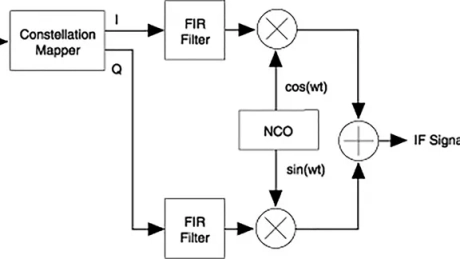Phase Modulator IP
Filter
Compare
18
IP
from
12
vendors
(1
-
10)
-
ISDB-T Modulator
- The CMS0045 ISDB-T Modulator provides all the necessary processing steps to modulate one, two or three transport stream into a complex I/Q signal for input to a pair of DACs, or an interpolating DAC device such as the AD9857/9957 or AD9789. Optionally the output can be selected as an IF to supply a single DAC.
- The design has been optimised to provide excellent performance in low cost FPGA devices such as the Cyclone range from Altera or the Spartan range from Xilinx
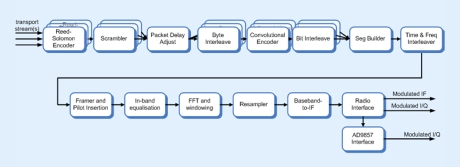
-
19 GHz to 20.25 GHz FMCW Modulator for RADAR
- Power Dissipation: 480mW
- Output power: 10 dBm
- Reference input: 20 MHz to 100 MHz
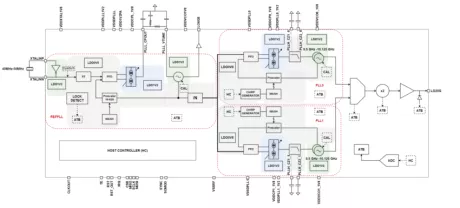
-
3.5 to 5 GHz, 7 to 10 GHz and 14 to 20 GHz FMCW Modulator for RADAR
- Ultra-Linear Ultra-Fast FMCW Chirp Generator
- Ultra Low PN (SSB): -115 dBc/Hz at ?f=1MHz
- Reference input: 40 MHz to 100 MHz
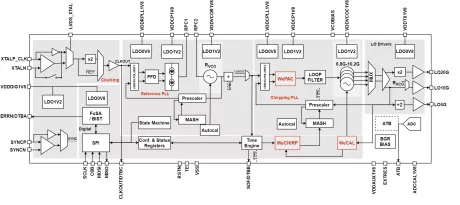
-
Quadrature Amplitude Modulation: Modulator and Demodulator
- 1. Quadrature amplitude modulation Aside from increased channel capacity, QAM has various other advantages, which are stated below.
- 2. One of the most significant advantages of QAM is its ability to sustain a high data rate. As a result, the carrier signal can carry a certain amount of bits. Because of these benefits, it is preferred in wireless communication networks.
- 3. The noise immunity of QAM is quite strong. Noise interference is a bit low as a result of this.
- 4. It has a low mistake probability value.
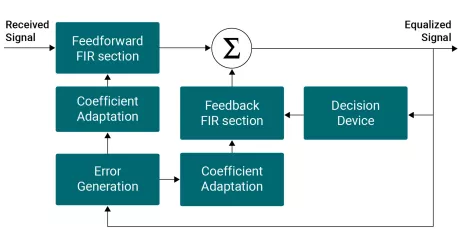
-
EA/MZ Modulator Driver 1.25Gb/s to 11.3Gb/s
- Data-rates from 1.25Gb/s to 11.3Gb/s.
- Single –5.2V Power Supply
- Programmable output voltage from
- Programmable EAM bias voltage up to 1V
-
DVB-T/DVB-H modulator
- Fully compliant with ETSI EN 300 744 V1.5.1.
- Extension core available for DVB-T(H) support.
- Enables rapid development of audio/visual systems using commodity Free-to-Air set-top-box technology and low-cost FPGAs.
- Configurable support for 2K and 8K OFDM modes and hierarchical transmission. (4k for DVB-T(H))
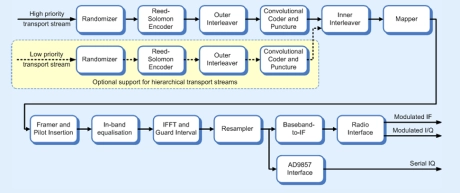
-
Frac-N PLL on Samsung 8nm LN08LPP
- PLLF0842X is a 1.8V/0.75V dual supply-voltage phase locked loop (PLL) with a wide-output-frequency-range for frequency synthesis.
- It consists of a phase frequency detector (PFD), a charge pump, a voltage-controlled oscillator (VCO), a 6-bit pre divider, a 10-bit main-divider, a 3-bit scaler, a delta-sigma modulator (DSM) and an automatic frequency control (AFC).
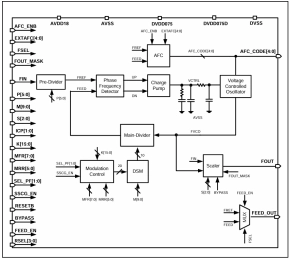
-
Frac-N PLL on Samsung 4nm LN04LPP
- PLLF0434X is a 1.2V/0.75V dual supply-voltage phase locked loop (PLL) with a wide-output-frequency-range for frequency synthesis.
- It consists of a phase frequency detector (PFD), a charge pump, a voltage-controlled oscillator (VCO), a 6-bit pre-divider, a 10-bit main-divider, a 3-bit scaler, a delta-sigma modulator (DSM) and an automatic frequency control (AFC).
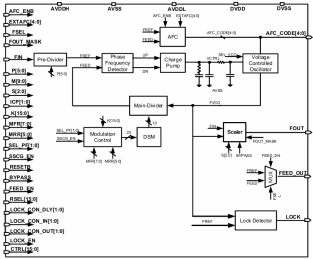
-
Frac-N PLL on Samsung 28nm LN28FDS
- PLL2860X is a 1.8V/1.0V dual supply-voltage phase locked loop (PLL) with a wide-output-frequency-range for frequency synthesis.
- It consists of a phase frequency detector (PFD), a charge pump, a voltage-controlled oscillator (VCO), a 6-bit pre divider, a 10-bit main-divider, a 3-bit scaler, a delta-sigma modulator (DSM) and an automatic frequency control (AFC).
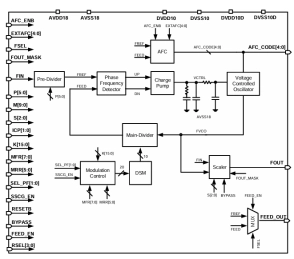
-
NCO Intel® FPGA IP Core
- A numerically controlled oscillator (NCO) is a digital signal generator, which synthesizes a discrete-time, discrete-valued representation of a sinusoidal waveform
- You can typically use NCOs in communication systems
- In such systems, they are used as quadrature carrier generators in I-Q mixers, in which baseband data is modulated onto the orthogonal carriers in one of a variety of ways.
